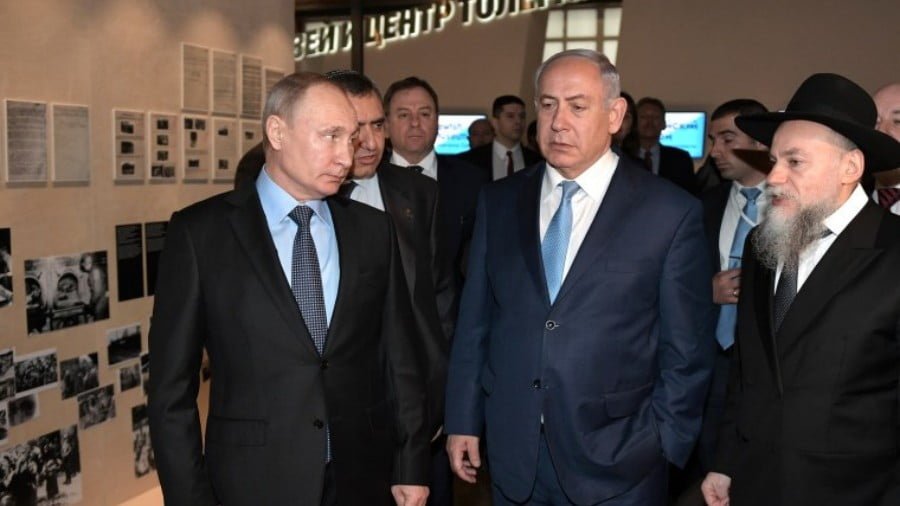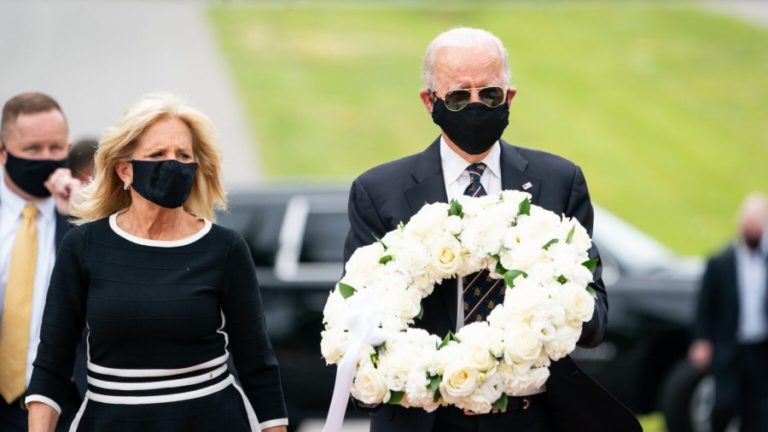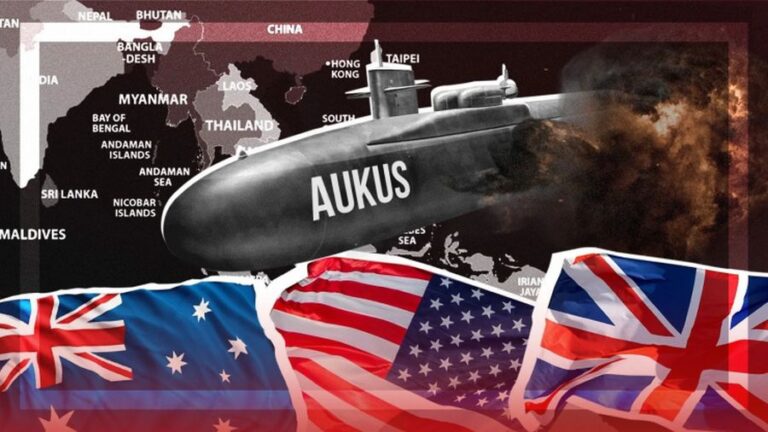Russia and “Israel”: When the “Cover-Up” Is Worse Than the “Crime”
The attempt by a high-ranking and very well-respected Russian diplomat to casually dismiss the claims that his country is in a strategic alliance with “Israel” risks backfiring after an influential journalist at a popular Alt-Media platform assumed that he was speaking in an official capacity, which saw the writer selectively amplify certain remarks that paradoxically disproved his intended point.
The famed Russian publication Izvestiya published a detailed interview with Dr. Vitaly Naumkin, the Director of the Russian Academy of Sciences’ Institute of Oriental Studies and influential advisor to UN Special Envoy to Syria Steffan de Mistura, in which Russia’s top Mideast expert insisted that his country isn’t in a “strategic alliance” with “Israel”. This was promptly picked up by M. K. Bhadrakumar, a career diplomat from India who’s one of his country’s last remaining Russophiles in a position of influence and also one of the most prestigious writers at the popular Asia Times, who interpreted parts of Dr. Naumkin’s interview as conveying the idea that he “has marked some distance between Russia and Israel at a complicated juncture when the self-serving western narrative would be that the two countries have struck a deal at the highest level of leadership regarding the future of Syria, leaving Iran out in the cold”.
Mr. Bhadrakumar elaborated on this by then subsequently remarking that “Moscow feels that poison is being injected into Russia’s complex equations with Tehran and Damascus. Who else but Naumkin could provide the perfect antidote?” The distinguished former diplomat later ended his report on Dr. Naumkin’s interview by concluding that “Besides, it is no secret that Russia has nothing to do with Iran’s policy of resistance against Israel. But then, to put two and two together to shout and dance in jubilation that Russia is muzzling Iran is completely unnecessary – and can turn out to be counterproductive. Of course, if anyone tries to create confusion, Moscow will clarify. That is what Naumkin has ably done.” The impression that the writer gave is that Dr. Naumkin was speaking in an official capacity on Moscow’s behalf, but this is unclear from the context of the Izvestiya interview and will be proven in this analysis to have been an incorrect interpretation.
Cherry-Picking
Of relevance, Mr. Bhadrakumar was previously incorrect in interpreting my January 2017 analysis titled “Here’s Why President Putin Should Visit South Asia This Year” when he strongly implied through innuendo on his blog that “such things do not appear accidentally in the government-funded Russian media”, which is misleading because that was an unsolicited submission that I sent to Sputnik like all of my other articles for any of my partners, including this present one. Mr. Bhadrakumar’s personal interpretation to Asia Times’ English-speaking audience about the motivations behind Dr. Naumkin’s Russian-language interview should therefore be understood as purely his own, though in this case he might actually be somewhat (key word) right because it did convincingly appear as though the expert was indeed attempting to clarify his country’s position on this sensitive topic, even if he was speaking in an unofficial capacity for appearance’s sake.
To be clear, however, Dr. Naumkin didn’t comment on the widely held view that Russia and “Israel” are coordinating their policies in Syria at Iran’s perceived expense, and everything in Mr. Bhadrakumar’s article that attempts to refute that are his own words and interpretations. Nevertheless, he’s factually incorrect because Russian Foreign Minister Sergei Lavrov already acknowledged some degree of coordination in late May when speaking at the Primakov Readings international think tank summit, revealing that “As regards the confrontation between Israel and Iran in Syria, we have agreements on the southwestern de-escalation zone, these agreements have been reached between Russia, the United States and Jordan. Israel was informed about them as we were working on them. They [agreements] stipulate that this de-escalation zone should consolidate stability, while all non-Syrian forces must be withdrawn from this area. And I think that this should happen as soon as possible”.
The key phrase about how “all non-Syrian forces must be withdrawn from [the southwestern de-escalation zone]” is a euphemism for the removal of Iran’s elite Islamic Revolutionary Guard Corps (IRGC) and their Hezbollah allies, which Lavrov himself confirms was part of an agreement that Russia reached with the US & Jordan and which “Israel” was informed about. The reality of Russia’s “balancing” act is more nuanced and less dramatic than how Mr. Bhadrakumar frames it in his Asia Times piece, which I explained at length in my analysis preceding Lavrov’s statement in “Predicting What A Syrian Peace Deal Would Look Like”. Interestingly, while Mr. Bhadrakumar invested a lot of effort in interpreting a few of Dr. Naumkin’s words as debunking this very same “balancing” act that Lavrov acknowledged, he neglected to inform his audience about the rest of the statement that the Syrian expert said about “Israel”.
The Rest Of The Statement About “Israel”
Dr. Naumkin boldly went where few have dared to go before him in declaring that “Once upon a time, Israel was perceived as a puppet of the United States or as a force that financed some anti-Russian actions. It was in the old Soviet times. Today, everything is different…Israel does not join any sanctions. Israel is not afraid.” This strong statement obviously implies that he doesn’t consider “Israel” to be a puppet of the US, believing instead that it is a fully independent entity that’s even defying America by going against the sanctions in order to prove that it’s not afraid of standing up to Washington. Despite how attractive this might make “Israel” as Russia’s next strategic partner, he said shortly before this that “Nobody says that we have a strategic alliance with Israel. We have a normal and respectable relationship of trust. Together we are fighting terrorism”, but it’s this latter remark about “fighting terrorism together” that ironically suggests a strategic partnership.
As the saying goes, “the cover-up is sometimes worse than the crime”, and while it’s not a “crime” for Russia to enjoy high-level strategic relations with “Israel” seeing as how it endeavors to become the supreme “balancing” force in Afro-Eurasia, Dr. Naumkin’s attempt to dismiss or “cover up” what might be the true nature of this partnership risks backfiring when considering what he said about the two “fighting terrorism together”. “Israel’s” strikes in Syria are always aimed at hitting the IRGC or Hezbollah, neither of whom Russia has designated as “terrorists”, and this motivation is an open secret that’s regularly hinted at by Tel Aviv’s officials and widely discussed in its press. For this reason alone, namely that Dr. Naumkin seems to imply that he considers these two to be the “terrorists” at the center of Russian-“Israeli” cooperation in Syria, it is incorrect to assume that he’s speaking in an official capacity.
What’s probably the case is that Dr. Naumkin used the opportunity to be interviewed in an informal capacity as an individual expert unrepresentative of his diplomatic functions with de Mistura and the Kremlin in order to advance some official talking points while inserting his own opinion about others. This is absolutely standard for people of his stature and there’s nothing unusual about it at all, but it’s just that the ambiguity about which words are official compared to unofficial is what excites inquisitive observers the most and leads to various interpretations of what they’re really saying and why, as seen on full display by Mr. Bhadrakumar’s report. To refer back to his Asia Times piece, the author is apparently unfamiliar with Dr. Naumkin’s tendency to seamlessly move in and out of his formal and informal capacities when speaking because otherwise he wouldn’t have assumed that everything that the expert says is an official elaboration on the Kremlin’s policies.
Naumkin Knows Best…Or Does He?
Take for example what Dr. Naumkin wrote on 20 August, 2015 for the DC-based Al Monitor analytical publication in lambasting Russian journalist Ruslan Gorevoy for, as he phrased it, “claim[ing] — very provocatively and without basis — that ‘the decision to send military assistance to Syria has already been taken’ and ‘in September a ‘limited contingent’ of the Russian army may be in Damascus’”, something which nevertheless turned out to be true. Even so, Dr. Naumkin excoriated Gorevoy for this ultimately accurate report with a surprising ad hominem attack by concluding that “For now, this is only the fervent (if not sick) imagination of that author speaking”, which was totally out of character for such an esteemed expert who’s heralded as Russia’s wisest source on Mideast insight and was rightly selected by his country’s government to advise de Mistura on Syria for that very reason.
Dr. Naumkin can be forgiven for letting his emotions get the best of him at that time in trying to debunk what he probably sincerely believed to be fake news, though cynics would suggest that this influential thinker might have previously been tipped off about the truth and was tasked with “covering up” what has now been revealed to have been Russia’s progressively secret deployment in Syria until it became impossible for anyone to deny with a straight face. Whatever the reality may be, his assessment wasn’t proven to have been inaccurate until over a month later and was largely forgotten amidst the fast-moving events associated with Russia’s game-changing anti-terrorist intervention in Syria, though the same can’t be said for what he’s reported to have claimed as recently as last month.
Bloomberg reported that Dr. Naumkin disagreed with the interpretation that President Putin’s statement just a week prior that “We proceed from the assumption that…foreign armed forces will be withdrawing from the territory of the Syrian Arab Republic” – importantly proclaimed while standing next to President Assad who had paid a surprise visit to Sochi – was about Iranian troops, with the outlet writing that “Naumkin said that was a reference to Turkish and U.S. forces, since Russian and Iranian troops have been invited by the Syrian government.” Just three days earlier, President Putin’s hand-picked Special Envoy for Syria Alexander Lavrentiev confirmed that this included “the Americans, the Turks, Hezbollah, and of course the Iranians”, so this could either be a case of Dr. Naumkin not having been aware of such an important public clarification for some inexplicable reason in spite of his official position as de Mistura’s advisor or possibly forgetting that he read about it or was told earlier.
Concluding Thoughts
Another explanation, albeit admittedly speculative, could be offered as well in wondering whether Dr. Naumkin is taking advantage of his high-profile position and observers’ inquisitive interest in interpreting the capacity in which he says various things in order to deliberately (whether on his own prerogative or per someone’s suggestions) “muddy the waters” and carry out what can euphemistically be described as “track two public relations” in going along with imagined narratives for strategic reasons. So as not to be misunderstood, nothing unethical is being implied here because it’s a standard tactic commonly employed in the sphere of high-level perception management operations and is actually an act of patriotic service to one’s country if performed. If this is indeed what Dr. Naumkin has been doing from time to time, then he deserves to be saluted instead of shamed, though this theory would mean that his public words should always be taken with a grain of salt.
Specifically in the context of this analysis, his claim that Russia and “Israel” are not in a “strategic alliance” is paradoxical in and of itself because “fighting terrorism together” as he put it against what can only realistically refer to the IRGC and Hezbollah that Tel Aviv has bombed on countless occasions already with Moscow’s passive facilitation through the reported use of the so-called “deconfliction mechanism” would signify high-level strategic coordination between the two. His words, however, only matter in a practical sense if he was speaking in an official capacity, which he most likely wasn’t when he said them even if he did silently switch to what can be assumed might have been his formal role when speaking on other topics during his latest interview. Mr. Bhadrakumar’s well-intended attempt to interpret Dr. Naumkin’s words according to own confirmation bias therefore cannot be described as successful because the facts disprove the narrative that he’s asserting.
There was never a “crime” to begin with when it comes to Russia’s undoubtedly strategic relations with “Israel”, but trying to cover it up in the manner that Mr. Bhadrakumar did might have inadvertently been counterproductive to the noble goal that Dr. Naumkin was trying to achieve.







